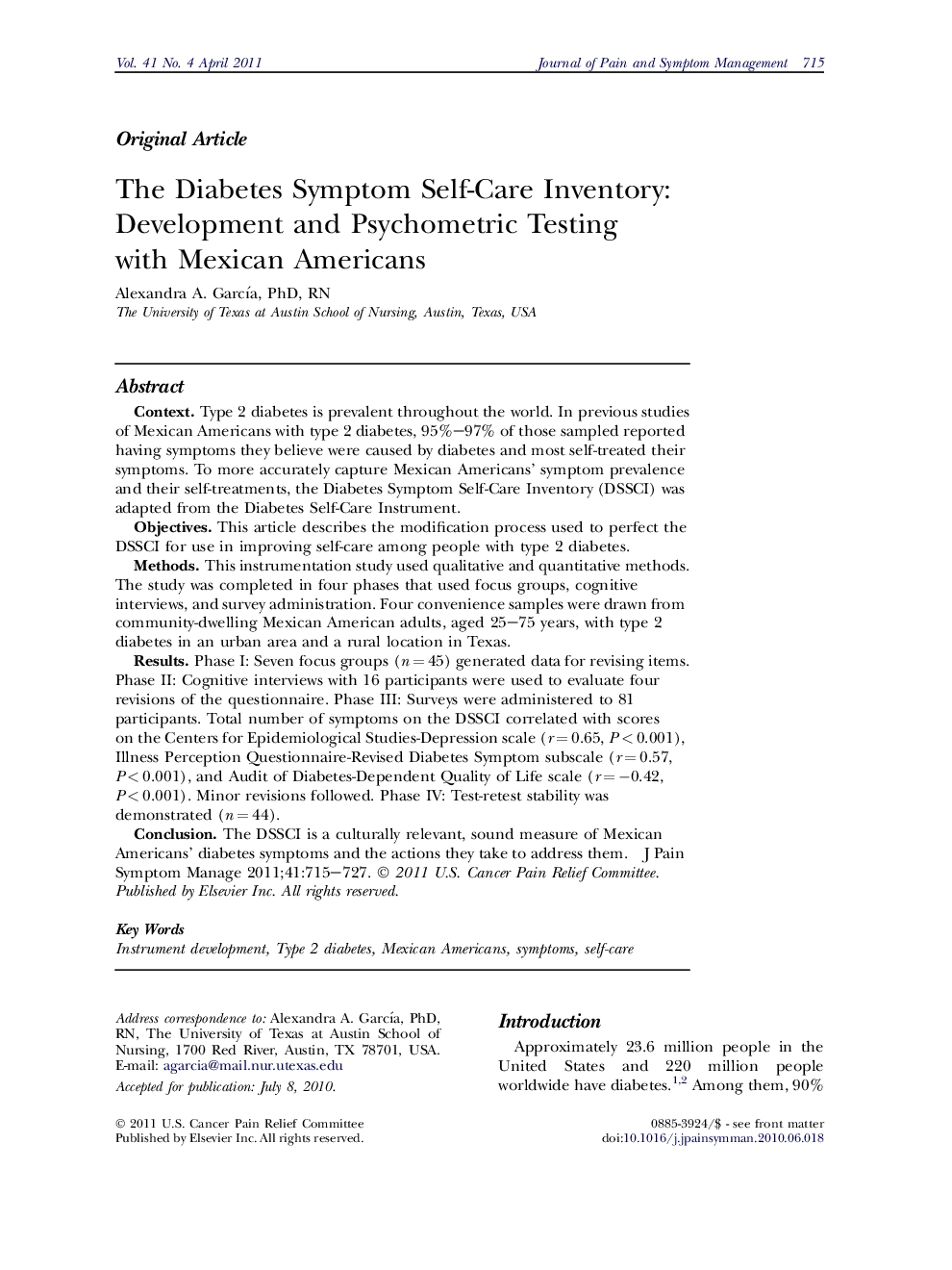| Article ID | Journal | Published Year | Pages | File Type |
|---|---|---|---|---|
| 2734774 | Journal of Pain and Symptom Management | 2011 | 13 Pages |
ContextType 2 diabetes is prevalent throughout the world. In previous studies of Mexican Americans with type 2 diabetes, 95%–97% of those sampled reported having symptoms they believe were caused by diabetes and most self-treated their symptoms. To more accurately capture Mexican Americans’ symptom prevalence and their self-treatments, the Diabetes Symptom Self-Care Inventory (DSSCI) was adapted from the Diabetes Self-Care Instrument.ObjectivesThis article describes the modification process used to perfect the DSSCI for use in improving self-care among people with type 2 diabetes.MethodsThis instrumentation study used qualitative and quantitative methods. The study was completed in four phases that used focus groups, cognitive interviews, and survey administration. Four convenience samples were drawn from community-dwelling Mexican American adults, aged 25–75 years, with type 2 diabetes in an urban area and a rural location in Texas.ResultsPhase I: Seven focus groups (n = 45) generated data for revising items. Phase II: Cognitive interviews with 16 participants were used to evaluate four revisions of the questionnaire. Phase III: Surveys were administered to 81 participants. Total number of symptoms on the DSSCI correlated with scores on the Centers for Epidemiological Studies-Depression scale (r = 0.65, P < 0.001), Illness Perception Questionnaire-Revised Diabetes Symptom subscale (r = 0.57, P < 0.001), and Audit of Diabetes-Dependent Quality of Life scale (r = −0.42, P < 0.001). Minor revisions followed. Phase IV: Test-retest stability was demonstrated (n = 44).ConclusionThe DSSCI is a culturally relevant, sound measure of Mexican Americans’ diabetes symptoms and the actions they take to address them.
